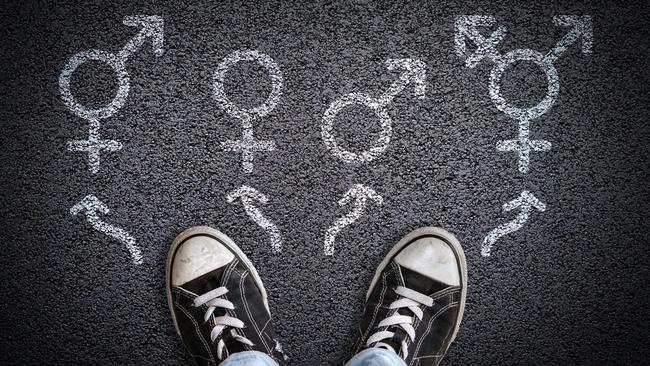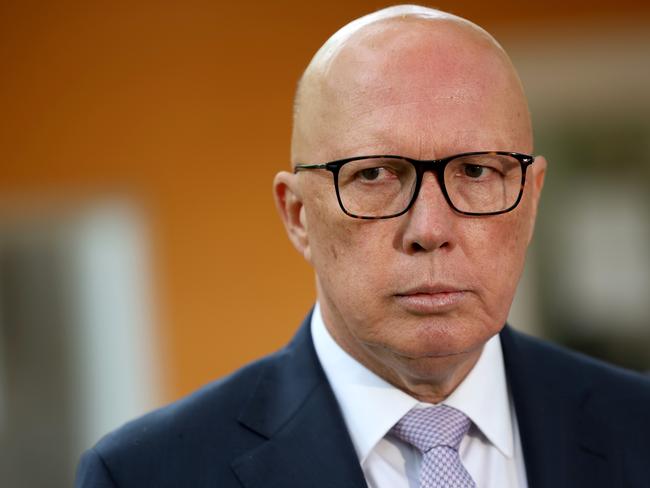Country must beware Victoria elevating new anti-vilification laws to state religion status

If the government’s proposed changes proceed, Victorians will lose their right to free speech, setting a precedent for the entire country.
Current anti-vilification legislation in Victoria is restricted to race and religion, which is in line with the rest of the country. But the government wants to expand this law to include a laundry list of additional attributes, including disability, gender identity, sexual characteristics, and sexual orientation. If such an expansion is passed, it will become illegal in Victoria to offend people who are disabled, trans, non-binary or “sexually diverse”. Maximum prison sentences will be up to three to five years.
The legal thresholds for what constitutes vilification will be lowered. Currently, one must “incite hatred” to breach the law. Under the proposed changes, however, speech that is “likely to incite” will become a criminal offence. Under such a standard, almost all speech referring to those with protected attributes – regardless of intent or context – could be deemed criminal. This means journalists, writers, comedians, academics, artists and activists will all be open to prosecution.

This may sound alarmist and hyperbolic. And of course, warnings about encroaching authoritarianism – particularly from the Victorian government – are nothing new.
During the pandemic – and during the longest lockdowns outside China – Victoria drew international scrutiny for its authoritarian measures. Demonstrations in which rubber bullets were shot at protesters shocked the country. Images of a pregnant mother being arrested in her home shocked the world. Nevertheless, Victoria emerged from the Covid pandemic with its freedoms still intact, and dire predictions of enduring totalitarianism proved to be overblown.
This proposed legislation, however, is different. To grasp how these changes could suppress everyday speech, we need only look at what’s already deemed offensive. Unlike previous false alarms, this threat to free expression is both real and urgent.
In 2023, for example, trans activist Claire Southey took the Australian Press Council to court for failing to rule against The Daily Telegraph for reporting the gender identity of a sex offender. The Council had ruled that The Daily Telegraph had not breached journalistic standards when it reported that “pedophile Scott Lee Irwin … identified as transgender and was now known as Sheryl”. Yet Southey alleged that such reporting promoted negative stereotypes about transgender people, and thus took the Press Council to court.
Other complaints target figures for political reasons. In August, the Alliance Against Islamophobia lodged a complaint against federal Opposition Leader Peter Dutton for creating a “hostile environment for Muslim Australians” and “reinforcing harmful stereotypes about the Muslim community”.
What did he do? Dutton said that if “the Prime Minister were in a minority government in the next term of parliament, it will include the Greens, it’ll include Green-teals, it’ll include Muslim candidates from western Sydney. It will be a disaster”. Such a statement “dehumanises and vilifies Muslim candidates”, the AAI alleged.

Dutton’s sentiments – likely to be echoed by thousands of Australians – could wind up attracting prison sentences under Victoria’s proposed changes to anti-vilification laws. We must confront an uncomfortable truth. In Victoria, the state appears to be enshrining a new belief system into law. The ideology of this belief system (whether we want to call it progressivism, “wokeness” or something else) is now acquiring the trappings of official doctrine. This doctrine determines that certain groups have special moral status, with demands that are sacrosanct and beyond questioning.
This new orthodoxy operates on multiple levels. First, it holds that speech inflicts harm equivalent to physical violence, which means stringent controls must be placed on expression. Second, it establishes a hierarchy of moral authority based on perceived victimhood, where some voices are deemed more virtuous than others. Third, it promotes a series of dogmas about identity, privilege and systemic oppression that brook no dissent. This means debate is off the table.
Like any religion, this belief system has its own heresies. Questioning the concept of gender fluidity or expressing concern about biological males in women’s sports or suggesting that factors other than discrimination might contribute to disparities between groups – all these become dangerous utterances, potentially worthy of legal sanction.
Just as heretics once faced inquisitions for challenging church doctrine, today’s dissenters risk social ostracism, professional ruin and potentially legal consequences for transgressing this new moral code. Victoria’s shift represents a fundamental reimagining of the role of government in a liberal democracy. Rather than serving as a neutral arbiter, protecting the rights of citizens who have equality before the law, the state is now becoming the enforcer of a particular worldview. It’s a vision where the government not only dictates what citizens can say, but what they must believe.
The rest of Australia must remain vigilant. Whatever path Victoria chooses, the rest of the country must not follow suit in elevating this new orthodoxy to the status of state religion.
Claire Lehmann is founding editor of Quillette online magazine.




Writing in The Australian recently, Chris Uhlmann observed that “when you crimp or criminalise words and symbols, a tiny piece of freedom is handed to a bureaucrat to arbitrate”. It was an astute analysis, but Uhlmann did get one thing wrong. In Victoria, under its proposed expansion of anti-vilification laws, the freedoms that will be handed over are not tiny.